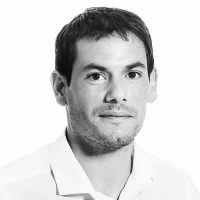10:00 - 12:00
Chalk - deep dive session
A better understanding of the chalk reservoirs is relevant for increased recovery and for CO2 storage, and has been the subject of many research projects since the start of the centre. In this deep dive session, we will go into some of the main findings in three key areas: Geomechanics, Recovery and Geology. The format will be short presentations followed by an open panel discussion.
Geomechanics
The inherent soft mechanical properties of chalk cause technical challenges related to well drilling/stability and platform subsidence that have costly consequences (e.g., Tyra re-development project). What are the main chemo-mechanical processes controlling the in situ deformation behaviour of chalk? How to reliably transfer laboratory data to the field scale? Can we now after 40 years of research efficiently mitigate the risks or are there still questions that remain unanswered?
Besides, experimental and feasibility studies on injecting and storing CO2 in depleted chalk reservoirs are abundant nowadays. Is it safe to use chalk formations for CO2? What are the effects of CO2 on chalk geomechanics?
Presenters: Frederic Amour, DTU Offshore
Panel: Frederik Ditlevsen, GEO; Ida Fabricius, DTU Sustain; and Finn Engstrøm, TotalEnergies
Recovery
Oil recovery from waterflooded chalk fields has rarely exceeded 50% of STOIIP when seawater is being used for injection. New research shows that recovery efficiency could have been over 10% higher if modified seawater, or produced water, were injected from the start of field life.
Why is this, and what evidence do we have? What is the optimum injection water composition?
What do these new insights mean for new and existing developments going forward?
Presenters: Hans Horikx, DTU Offshore
Panel: Vibeke Levi Nilsson, Noreco Oil Denmark A/S; Hamid Nick, DTU Offshore; and Ken Wesnæs, Noreco Oil Denmark A/S
Geology
How do we build geological realistic reservoir models in the future, in relation to both oil and gas activities as well as CCS opportunities? Is the approach of simulating physical processes rather that the more traditionally data-driven approach a way for the future - examples from the Lower Cretaceous, Greater Valdemar area, and the Upper Chalk Roar area.
Presenters: Florian Smit, GEUS
Panel: David Quirk, DTU Offshore; Ingelise Schmidt, TotalEnergies; David Pickering, Pickering Geoscience; and Jan Kresten Nielsen, Noreco Oil Denmark A/S

